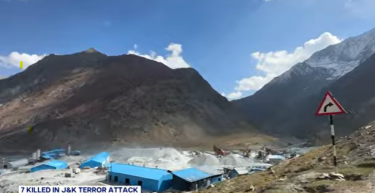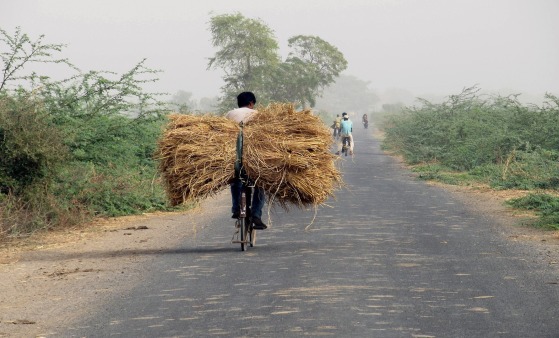
Saba Khan (name changed to protect identity) still remembers her wedding day in 2021 as the worst day of her life.
The 28-year-old Muslim woman from Srinagar, the capital of Jammu and Kashmir, endured years of abuse before securing a divorce last year. Within months of her wedding, she realised she was living in servitude, not marriage, suffering beatings, humiliation and strict control by her husband and in-laws.
“I could not even go out to buy groceries without permission,” she said. “Every small mistake led to violence. I felt trapped.”
When she gave birth to a daughter, the abuse intensified. “They said I was cursed because I had a girl,” she said. “The taunts never stopped.”
Her brother later filed a police complaint against her husband and in-laws.
Saba’s experience reflects that of many women in Jammu and Kashmir who face domestic abuse but remain silent due to social stigma and family pressure.
According to the National Crime Records Bureau (NCRB), the region recorded 3,653 cases of violence against women in 2023. These included 895 kidnappings, 524 reports of cruelty by husbands, and 231 cases of rape. Another 427 women were abducted for forced marriage, including ten minors.
“These numbers represent human suffering, they show trauma and fear that often remain unseen,” said sociologist Khurshid Nabi.
Domestic violence often goes unreported. Nusrat, a mother of two from central Kashmir, said, “My family told me to stay quiet and endure it. I felt powerless and alone.”
Women’s rights activist Rabiya Bano said many victims stay silent to avoid shame or losing custody of their children. “The trauma doesn’t end with abuse, it lasts a lifetime,” she said.
Psychologist Zahoor Ahmad noted that many survivors experience long-term depression, anxiety and post-traumatic stress. “Some attempt suicide,” he said. NCRB data from 2023 recorded 434 attempted suicides and 44 cases of abetment to suicide among women in the region.
Forced marriages and kidnappings also remain widespread. A senior police officer in north Kashmir said that some victims are minors and live in fear even after being rescued.
One 16-year-old survivor told reporters, “They said I agreed to the marriage. I had no choice. When I returned home, my community blamed me.”
Women in Kashmir also face online abuse. NCRB data recorded 43 cybercrime cases against women last year.
“Digital harassment is shrinking women’s confidence and mobility,” said Rashed Ali, a digital rights advocate in Srinagar. “Many stop using social media out of fear.”
A 25-year-old student recalled her ordeal after someone altered and circulated her photo online. “I stopped going out. I lost my confidence,” she said.
The NCRB also recorded 84 murders and 693 deaths of women due to negligence in 2023, along with nine dowry-related deaths and 438 attempted murders.
Molvi Javaid Ahmad, a Sunni cleric from Ganderbal, said the rise in violence against women reflects deep social problems. “Kashmir is a religious society where women’s dignity should be protected. The anger and frustration we see today are symptoms of a wider moral and social crisis,” he said.
Experts link part of the problem to ongoing conflict in the region, which has claimed around 100,000 lives since the 1990s. The long-standing tensions between India and Pakistan have left families divided and communities strained.
Sociologist Khurshid Nabi explained, “The breakdown of extended families, unemployment and social isolation are increasing domestic violence.”
Religious leaders agree that communities must play a stronger role. “Islam teaches compassion and respect within families,” said Molvi Ahmad. “Violence against women is not religious, it is a social issue. We must act before abuse becomes tragedy.”
Adapted from UCA News.




